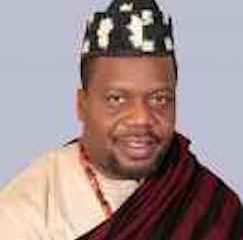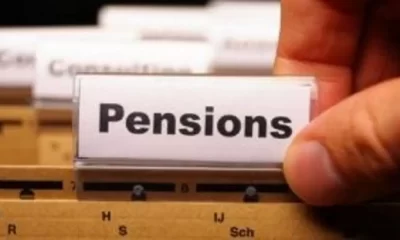Oil & Gas
NNPC Weekly Review: Stakeholders Hail PIA as Economic Game-Changer
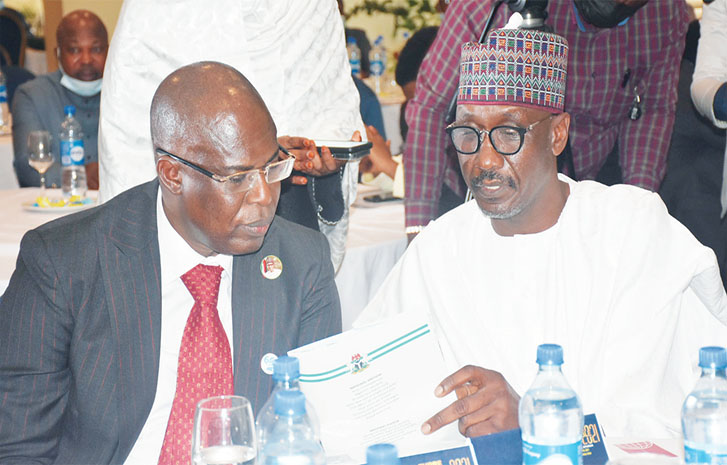
The Nigerian National Petroleum Company Limited (NNPC) started the week with the commendation of stakeholders in the nation’s political and industrial sectors on the successful activation of the Petroleum Industry Act (PIA 2021).
It would be recalled that the Act was signed into law by President Muhammadu Buhari on Aug.
16, as an economic game-changer.The stakeholders who include the Governor of Akwa Ibom State, Mr Udom Emmanuel, the Chief Executive Officer (CEO) of NNPC, Malam Mele Kyari, and former Managing Director of Seplat Petroleum Mr Austin Avuru, gave the commendation at the just concluded 27th Nigerian Economic Summit (NES).
The summit was a public-private sector dialogue organised by the Nigerian Economic Summit Group (NESG).
In a virtual presentation, Gov. Emmanuel applauded President Buhari’s timely assent to the PIA, saying that the law has given a sense of belonging to all stakeholders, especially the host communities.
The Governor who was represented by the Secretary to the State Government (SSG), Dr Emmanuel Ekuwem, said that the provisions regarding frontier exploration would help revisit the oil wells that had been capped and would improve the state’s economy.
On his part, the former Managing Director of Seplat Petroleum, Mr. Austin Avuru, said the PIA would change NNPC’s mode of operations as it had empowered the Company to do business according to rules rather than discretion.
He further noted that NNPC operating under the Company and Allied Matters Act (CAMA) would strengthen the petroleum industry.
In his presentation titled: “PIA 2021 Is a New Day”, the CEO of NNPC, Malam Mele Kyari, gave an overview of the structure of the new NNPC Limited as provided in the PIA.
Kyari who was represented by the Chief Financial Officer of the Company, Mr Umar Ajiya, said that according to the PIA, NNPC would operate under CAMA, declare dividends to its shareholders and retain 20 per cent of its profits to grow its businesses.
The PIA was enacted to provide legal, governance, regulatory and fiscal frameworks as well as provide guidelines for the development of host communities and other related matters in the upstream, midstream and downstream sectors of the Nigerian Petroleum Industry.
The Act is made up of five Chapters, 319 Sections, and 8 Schedules.
Still in the week under review, the NNPC said the country’s petroleum product demand would expectedly grow by 14.57 per cent to 17.3million metric tons by 2025 from 15.1million metric tons in 2020.
This projection was made by the company’s CEO, Mele Kyari, at the opening of the 15th Oil Trading and Logistics (OTL) Africa Downstream Week which took place in Lagos.
In a keynote address at the event, Kyari disclosed that the country required about 3.097billion dollars worth of investment in condensate refineries to meet the projected demand for petroleum products.
According to Kyari who was represented by the Group Executive Director, Downstream, NNPC, Engr. Adeyemi Adetunji, the NNPC requires between 1.6billion dollars and 2.7billion dollars to improve the supply and distribution of petroleum products, revamp Liquefied Petroleum Gas (LPG) infrastructure, and build Compressed Natural Gas (CNG) plants in the country.
Speaking on the theme of the conference “Downstream in Transition: Getting Set”, the NNPC helmsman said that the country would need a refining capacity of about 1.52million barrels per stream day (MBPSD) to meet its petrol requirement in the next four years.
He also projected that the demand for natural gas could grow about four times over the next decade from 4.8billion cubic feet per day (bcf/d) in 2020 to between 10 and 23bcf/d in 2030.
He said that the current supply to the domestic market was about 8bcf/d to power, 0.77bcf/d to industries, and 3.2bcf/d for export through the LNG and the West Africa Gas Pipeline (WAGP), while about 54bcf/d was flared.
According to him, the expected demand growth would come from the increase in the wheeling capacity of existing national power grid in line with the Presidential Power Initiative, major fertilizer projects (Dangote, Brass), and industrial demand for natural gas in the northern axis of the country.
On the global oil market outlook, Kyari said: “Some 10.4trillion dollars global stimulus in response to the COVID-19 pandemic led to the rebound in consumers’ spending while incentives for long-term investments in hydrocarbon had waned.”
Quoting the recent data by the Organisation of Petroleum Exporting Countries (OPEC), Kyari stated that hydrocarbon would continue to be relevant in the global energy mix for the next two decades.
He slao quoted OPEC date saying that the world oil demand is expected to rise from a pandemic stricken 90.6million barrels per day (mbpd) in 2020 to 108.2mbpd in 2045, thereby accounting for 28 per cent of global energy needs.
The OPEC data further stated that the rise in demand would be driven by growth in world population, which is set to expand to 9.5 billion by 2045, and the huge potential for expanding access to modern energy services for the under-served.
He noted that the downstream sector of Nigerian oil and gas industry had been in transition prior to the passage of the PIA.
This he said, was in response to the global energy transition and decarbonisation initiatives.
Kyari maintained that it would be difficult to discuss the transition in the downstream sub-sector in isolation from the overall evolution that is happening in the industry, adding that NNPC had diversified its portfolio over the years towards transiting to an energy company with new investments in gas, power, and renewables.
He said that key pipeline projects were on-going to assure delivery of gas to the demand nodes, stressing that the corporation has also progressed with the Refineries Rehabilitation Programme to enhance its participation in the Oil and Gas value chain.
Kyari explained that the transition in Nigeria’s oil and gas sector was being driven by the global decarbonisation efforts to switch to renewables in response to environmental concerns.
As investments in hydrocarbon continued to wane due to energy transition and geopolitics, Kyari said the world economy faced shortages, high energy prices, rising inflation and sluggish growth.
Meanwhile, the NNPC has revealed the cost of the 21 road it plans to rehabilitate under the Federal Government Road Infrastructure Development and Refurbishment Investment Tax Credit Scheme in pursuant to Presidential Executive Order 007 of 2019.
Following the approval by the Federal Executive Council (FEC), the NNPC would construct a total of 1,804.6km of roads at a total cost of N621,237,143,897.35 (Six Hundred & Twenty-One Billion, Two Hundred & Thirty Seven Million, One Hundred & Forty Three Thousand, Eight Hundred & Ninety Seven Naira, Thirty Five Kobo).
The breakdown is as shown below in a statement issued by Mr Garba Deen Muhammad, Group General Manager, Group Public Affairs Division of the NNPC.
| S/No | ZONE | KMs TO BE COVERED | COST (BILLION NAIRA) |
| 1. | North Central | 791.10 | 244,872,518,149.29 |
| 2. | North East | 273.35 | 56,126,741,692.11 |
| 3. | North West | 283.5 | 23,057,338,426.61 |
| 4. | South East | 122.0 | 43,281,895,080.04 |
| 5. | South South | 81.9 | 172,027,737,903.32 |
| 6. | South West | 252.7 | 81,870,912,645.98 |
| Total | 6 Zones | 1,804.6km | N621,237,143,897.35 |
Oil & Gas
Lawyers Integral to Optimal Regulatory Compliance in Oil Business – NMDPRA
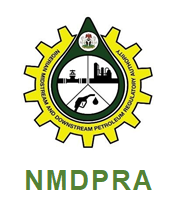
The Midstream and Downstream Petroleum Regulatory Authority (NMDPRA) said the role of legal practitioners is critical across the midstream and downstream energy business value chain in the promotion of optimal regulatory compliance.
Chief Executive, NMDPRA, Farouk Ahmed said this on Monday in Abuja at its 2025 General Counsel and Legal Advisers Forum for Midstream and Downstream Petroleum Companies in Nigeria.
The forum has its theme as ‘Advancing a Collaborative Compliance Culture in Nigeria’s Midstream and Downstream Petroleum Sectors’.
Ahmed was represented by Ogbugo Ukoha, Executive Director, Distribution System, Storage and Retailing Infrastructure, NMDPRA.
He said that the sector’s complexity required a unified compliance culture, rooted in robust and enabling legal frameworks, transparency, accountability and shared responsibility.
“The scope of operations of the sector covers hydrocarbon processing, wholesale marketing, transportation, storage, distribution and retail, and its complexity requires more than technical efficiency.
“The role of legal practitioners is critical across the midstream and downstream energy business value chain.
“They help to promote optimal regulatory compliance to set rules and standards of operations in our complex operational and volatile market environment,’’ he said.
Ahmed said that strategic and pragmatic solutions would be established from the forum to enhance performance of the sector towards creation of shared value for investors and the extensive market of Nigeria and the region.
He said that the Petroleum Industry Act (PIA 2021) had fundamentally restructured Nigeria’s petroleum industry by delineating regulatory responsibilities of the industry into the Upstream, midstream and downstream Petroleum operations.
According to him, the Act prescribed that all operations in the midstream and downstream sectors could only be conducted under appropriate licenses, permits and authorisations granted by the NMDPRA.
He said the PIA also mandated NMPDRA to make regulations concerning midstream and downstream petroleum operations in consultation with its licensees and stakeholders.
“As a result of the feedback received from our stakeholders on the need to strengthen regulatory compliance through simplified regulations, NMDPRA is implementing an inclusive stakeholder process of streamlining the gazetted and published regulations.
“This process will mitigate the complexities of navigating and implementing numerous regulations; eliminate inconsistencies and repetitions across multiple regulations; streamline regulatory processes for ease of business; and encourage investments in the industry.
“Kindly use this forum to critically review and make recommendations on the above.
This will enable us to improve the overall compliance of operators and the performance of the regulatory instruments (Legal frameworks and licenses) in the midstream and downstream sectors,” He said.
He said that NMDPRA would continue its commitment to effective stakeholder collaborations that would foster ease of doing business, investor confidence and sustainable operations.
Deputy Speaker, House of Representatives, Benjamin Kalu said that the PIA as a testament to the foresight and dedication of the National Assembly, had fundamentally reshaped Nigeria’s petroleum sector.
Kalu was represented by Ugochinyere Ikenga, Chairman, House Committee on Petroleum Resources, Downstream.
He said that the act had proven how strategic legislation could serve as a potent catalyst for compliance, investment attraction, and robust sector growth.
“For the PIA to remain truly effective, adapting to a dynamic global energy landscape and addressing unforeseen challenges, there must be an institutionalised robust mechanism for its continuous refinement.
“This is precisely where the invaluable insights of our nation’s petroleum experts and our general counsels, the legal architects and navigators of this complex framework, become indispensable.
“For or further synchronisation and effective post-legislative scrutiny, we must actively solicit and integrate your concerns.
“We envision a future where the National Assembly’s specialised committees regularly invite you professionals to public hearings and dedicated technical working groups,” he said.
Kalu said that this proactive engagement would transform abstract legal principles into tangible operational realities, furnishing us with the real-world data and case studies needed to truly understand the PIA’s strengths and weaknesses.
“Your feedback will illuminate where the PIA might be technically challenging, where legal interpretations create bottlenecks, or where new global trends necessitate legislative evolution,’’ he said.
Oil & Gas
OPEC Launches Campaign for Sustained Global Upstream Investment
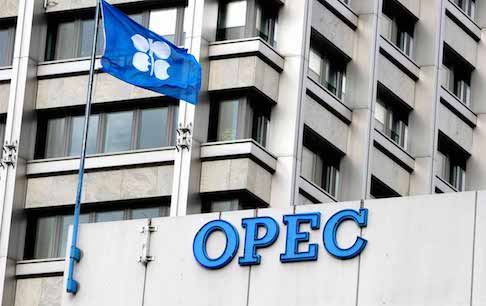
Torough David, Abuja
The Organization of the Petroleum Exporting Countries (OPEC) has launched a global investment drive seeking attention to creating value in the upstream oil and gas industry.
The Organization is calling for urgent and sustained investment in the global upstream oil sector, warning that a cumulative $14.
9tn will be required between 2025 and 2050 to meet projected demand and prevent a future energy crisis.This investment figure, equivalent to $574bn annually, represents the bulk of the $18.2 trillion in total oil-related investments needed over the 25-year period.
The OPEC had projected that $18.2tn investment would be required to meet global oil demand between 2025 and 2050, as it dismissed the notion of a looming peak in fossil fuel consumption as a “fantasy.
”According to the 2025 World Oil Outlook of OPEC, oil demand is projected to rise from 103.7 million barrels per day in 2024 to 116.5 mb/d by 2045 and peaking at around 123 mb/d by 2050, an 18.6 per cent increase over 26 years.
It also noted the need for continued investments in various segments of the sector to meet this demand.
It noted that of the total investment requirement, upstream operations, including exploration and production, are expected to gulp the lion’s share at $14.9tn, or $574bn per year, as producers scramble to ramp up supply. Midstream and downstream investments will require $1.3tn and $2tn, respectively.
“Cumulative oil-related investment requirements to meet projected demand are assessed at $18.2tn over the period between 2025 and 2050.
“This is marginally higher than projected in the WOO 2024, as despite the outlook period being one year shorter, this Outlook has also seen long-term oil demand revised upwards, and liquids supply has followed.
“Total upstream investment requirements make up the bulk of the needed capital expenditure, now projected at $14.9tn, or $574bn per annum. Downstream and midstream investment requirements are projected at $2tn and $1.3tn, respectively,” the report said.
OPEC Secretary-General, Haitham Al Ghais, said continued investments are essential to guarantee future energy security and affordability, especially in the Global South.
“There is no peak oil demand on the horizon,” Al Ghais declared in the report’s foreword. “Efforts to rapidly phase out fossil fuels are unrealistic and disregard energy security, affordability, and socio-economic realities of billions still lacking basic energy access,” he said.
Oil & Gas
FG Declares End to Dormant Fields on Oil Production

By David Torough, Abuja
In a renewed push to meet its OPEC production quota and 2025 budgetary targets, the Federal Government yesterday declared an end to the era where oil companies acquire field licenses and leave them dormant.
The government warned that it would no longer tolerate operators lacking the technical and financial capacity to develop oil fields, stressing that such licenses would be withdrawn.
Minister of State for Petroleum Resources (Oil), Senator Heineken Lokpobiri issued the warning at the ongoing 2025 Nigeria Oil and Gas Energy Week in Abuja.
Lokpobiri said the government was determined to maximize oil production by ensuring that only serious investors retain access to Nigeria’s hydrocarbon resources.
The conference had the theme: “Accelerating Energy Progress Through Investment, Global Partnerships and Innovation”.
Lokobiri stated that, “In our ongoing drive to boost national oil production, the Federal Government remains resolute in ensuring that maximum value is derived from upstream assets currently held by operators.
“This objective has taken on greater urgency as global financing for oil and gas projects continues to tighten, making it increasingly difficult for all operators to secure the capital needed to develop these assets.
“It is no longer acceptable for critical national resources to remain in the hands of companies that lack the technical or financial capacity to optimize them or worse, those who use such licenses merely as a lever to access scarce capital, only to divert it to unrelated ventures.
“Our oil and gas industry has witnessed far too many cautionary tales of this nature, and we must now draw a clear line”.
He said the government has engaged an international consultant to evaluate the 273 fees and rates faced by oil companies in the country to align them with international best practices.
Also, the Minister of State Petroleum Resources (Gas), Ekperikpe Ekpo said Nigeria had proven gas reserves of over 200 trillion cubic feet, yet value would only be created when resources were developed and utilised.
Ekpo said that through the Decade of Gas initiative, the country was focused on translating its vast gas wealth into tangible socio-economic benefits.
This, he said, included driving industrialisation, expanding power generation, increasing domestic Liquefied Petroleum Gas (LPG) usage, deepening gas-to-transport adoption, and growing gas export capacity.
Group Chief Executive Officer of NNPC Ltd, Engr. Bashir Bayo Ojulari disclosed that the Ajaokuta-Kaduna-Kano (AKK) Gas Pipeline has successfully crossed the River Niger, boosting the hope of the project’s completion by Q4 2025.
Ojulari, who described the development as a significant milestone, said the feat was achieved through effective and innovative contract reengineering and industry collaboration.
He also disclosed that for the first time in a long while, the nation enjoyed 100% crude oil pipelines availability throughout June 2025.
He said the feat which was possible through the industry-wide security interventions led by the NNPC helped to boost crude oil production.
He however called for more investments to boost production, adding that NNPC Ltd has been able to turn the narrative around by consistently meeting its cash-call obligations to Joint Venture operations.
He said the Petroleum Industry Act (PIA) has placed NNPC Ltd in a good position to live up to its responsibility of leading the industry in financing projects.
















